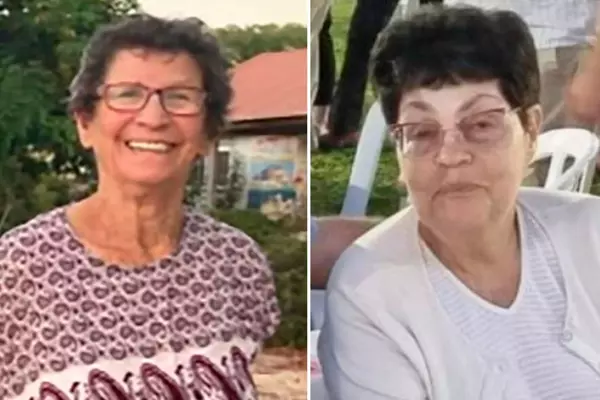An 85-year-old Israeli woman, Yocheved Lifshitz, who was held hostage by Hamas for two weeks, was released on “humanitarian grounds.” She shared her harrowing experience with reporters in Tel Aviv, recounting the ordeal she endured during her captivity. While she mentioned that her initial kidnapping was traumatic, she explained that her captors treated her and her fellow hostage well later on.
Lifshitz, speaking to the media a day after her release, revealed that she had suffered bruises when she was forcibly taken on a motorbike from her kibbutz in southern Israel on the morning of October 7. While this was an alarming start to her ordeal, she explained that the captors’ behavior improved over time.
One striking detail she emphasized was that the hostages were attended to by a doctor every 2-3 days, underscoring a surprising level of care considering the circumstances. She also mentioned that the rooms where they were held were kept clean, indicating that the captors took care of every detail.
Additionally, Lifshitz revealed that the hostages were offered food that mirrored what the captors themselves were eating. They were provided white cheese and cucumber, a gesture that demonstrated a degree of consideration for their well-being.
Lifshitz, seated in a wheelchair during the press conference, was accompanied by her daughter, Sharone, who had just returned from London to be with her mother. According to Sharone, Hamas militants had assured her mother that they respected the Quran and would not harm her. This explanation might provide some insight into the treatment Yocheved Lifshitz and the other hostage received during their captivity.
Another revelation made by Sharone, who spoke about her mother’s experience, was related to the network of underground tunnels used by Hamas. She described the tunnels as extensive, likening them to a “spider’s web.” These tunnels have long been a contentious issue in the Israeli-Palestinian conflict and have played a role in previous hostilities.
Hamas had stated that it had taken captives to demand the release of Palestinians detained in Israeli prisons. The situation escalated when, on the morning of October 7, Hamas carried out raids and fired thousands of rockets towards Israel. While they claimed to have targeted military installations, the Israeli government contended that civilians were among the 1,400 people killed in the attack. Israel responded with a series of bombings in the besieged Gaza Strip over the following two weeks, resulting in over 4,500 casualties. The Gaza Health Ministry reported that more than 1,500 of those killed were children.
The release of Yocheved Lifshitz has brought attention to the ongoing Israeli-Palestinian conflict and the complexity of the situation. The differing perspectives on groups like Hamas, which is considered a terrorist organization by some countries and entities but not by others, highlight the challenges in finding a peaceful resolution to the conflict.
